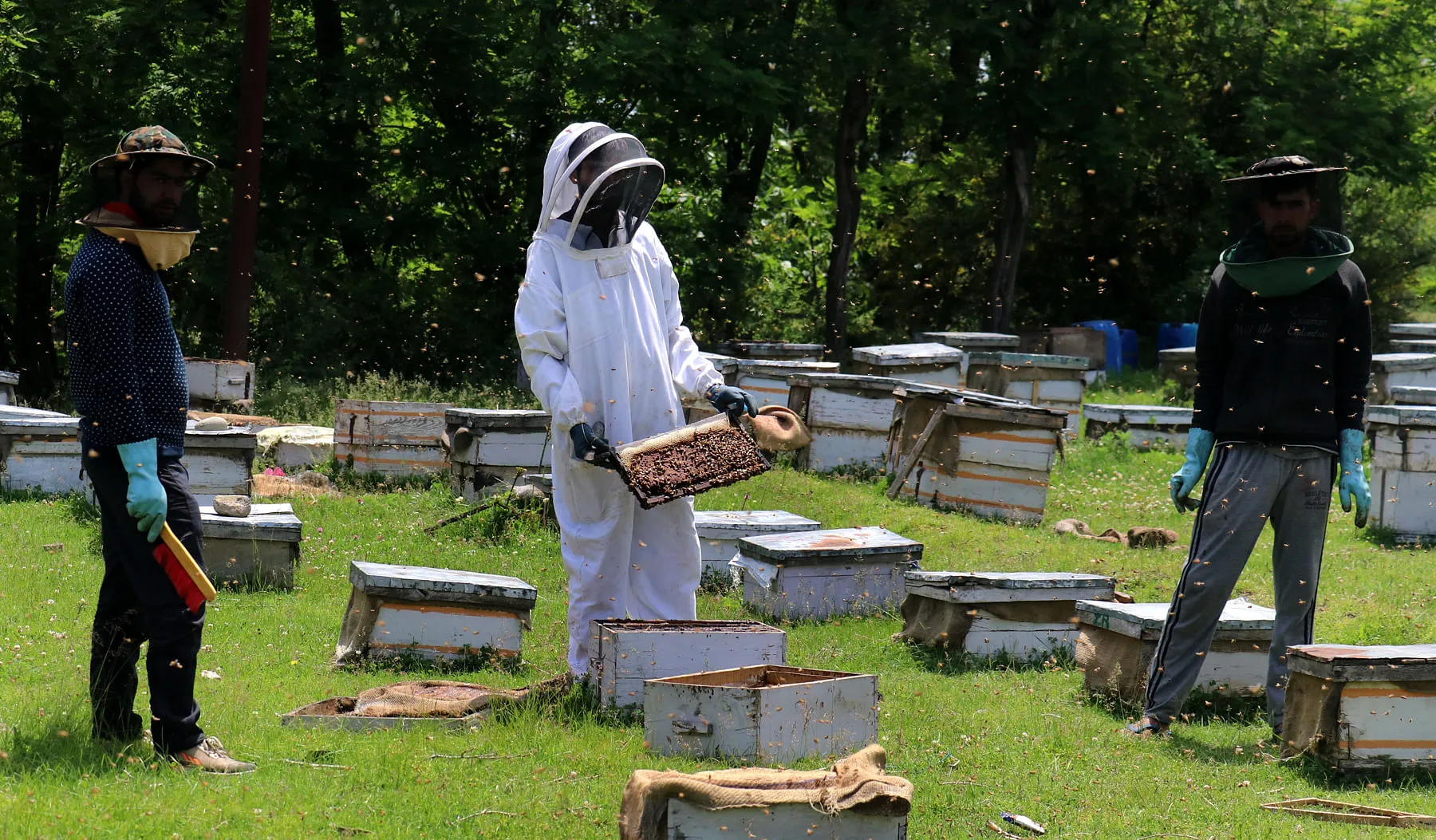Baramulla: Six years back, Jahangir Ahmad, a resident of Chukar village of Pattan in north Kashmir’s Baramulla district with an aim to shift from conventional apple farming to bee farming started an experiment with three bee colonies.
Six years down the line, Jahangir has at present 350 bee colonies, which produce 150 quintals of superior quality of honey called as acacia (Kikar). The cost of acacia quality of honey per kg is Rs 800 in the market and it has tremendous demand commercially.
“The bee farming has changed my fortune,” said Jahangir Ahmad. “Out of 350 bee colonies, I earn a profit of around Rs 6 lakh per annum which is remarkable,” he said.
While giving details of his journey, Jahangir Ahmad, a post graduate in Tourism, said that his family possessed an apple orchard comprising around 10 kanal of land. He said in 2016, the apple production in their orchard dropped significantly.
He said worried over the drop in apple production, the family decided to set up apiaries in the orchard for pollination through honey bees. He said after pollination, the apple production saw considerable increase and provided an idea of starting a beekeeping unit.
“The idea of pollination in my orchard through honey bees prompted me to shift from conventional farming to bee farming,” said Jahangir.
In order to provide a sustainable environment for bees, Jahangir every year sets out with his bees to warmer places in the states of Rajasthan and Gujarat in search of blossoms. The migration starts by the end of August to mid-April.
“During this period the bees are provided a sustainable environment and the aim of migration is to decrease the mortality rate because of harsh winter conditions here. These bee colonies are also used for the pollination of flowers of pomegranate etc., in the warmer places. We earn around Rs 2000 per bee colony during 20 days of pollination process,” said Jahangir.
After achieving tremendous success in beekeeping, Jahangir is now keenly aspiring to further increase the bee colonies so that the scale of honey production is further increased.
He said a bee-farming unit does not require huge land and even a small piece of land is enough to start the commercial production of honey. “A small piece of land is enough to start the beekeeping unit. The people are not aware about the commercial benefits of such a unit which has no shortage of market,” he added.
Jahangir also gives credit to the department of Agriculture for the guidance and support and urges it to keep more beehives available in Kashmir and provide timely guidelines on different diseases associated with the honeybees.
Jammu and Kashmir has potential to sustain more than 6 lakh bee colonies. Keeping in view the potential in beekeeping, the government has come up with various schemes for unemployed youth with subsidies to set up beekeeping units. The Geographical Indication (GI) tag for honey proposed by the government will also help youth like Jahangir to run a successful business.






